#why so angy
Text

Wrath of the lamb
20 notes
·
View notes
Text
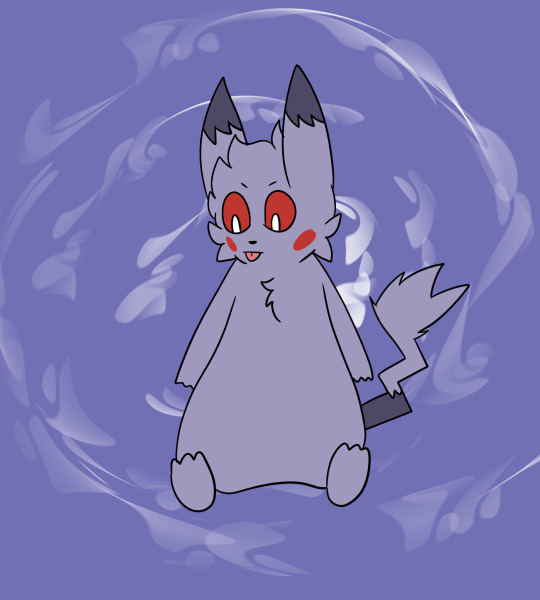
Angry little blep
#pokemon#daily pokemon#pokemon pikachu#pokemon daily blog#daily pokemon blog#pokemon daily#pikachu#gengar#??? gengar/pikachu#hims angy#why so angy#pokemon oc#my art
8 notes
·
View notes
Note
Costs you nothing to not act like a handjob to cripples online, just saying.
are we just saying the c word now, i mean thats cool if reclaiming
also consider this as a counterpoint vvv
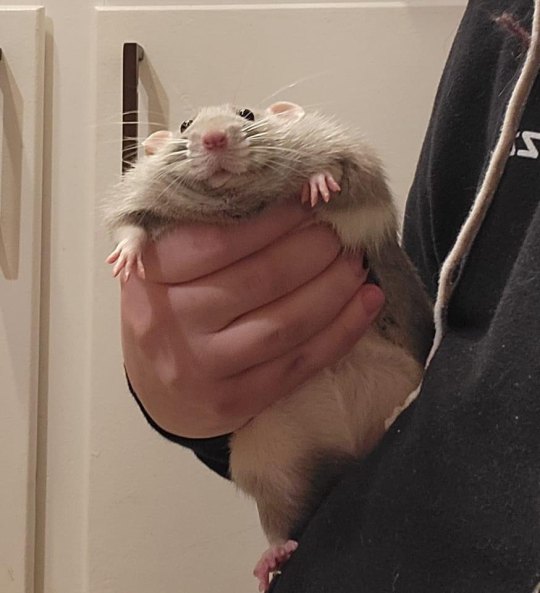
3 notes
·
View notes
Text
skhsdgkj i forgot to post this one-

9 notes
·
View notes
Text
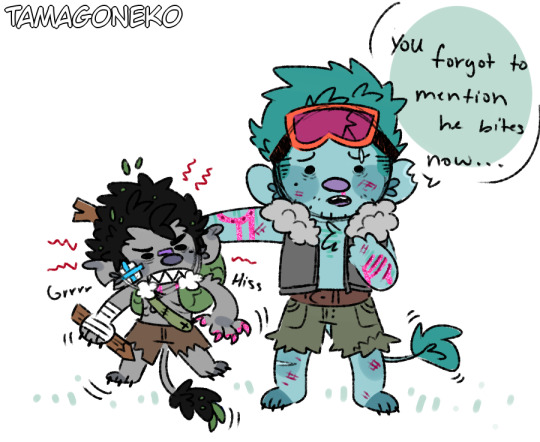
who's angry ass kid is this?
#dreamworks trolls#branch trolls#john dory trolls#something something jd comes back and finds his baby brother#branch is like 7-10? here but he's small.. which why john is able to just hold him with one arm#he angy and will bite#fanart#my art#doodle#sketch#feral branch#branch and john dory#trolls band together#im testing out some new brushes! so expect more doodles o3o
2K notes
·
View notes
Text
None Of You Know What Haiku Are
I'm going to preface this by saying that i am not an expert in ANY form of poetry, just an enthusiast. Also, this post is... really long. Too long? Definitely too long. Whoops! I love poetry.
If you ask most English-speaking people (or haiku-bot) what a haiku is, they would probably say that it's a form of poetry that has 3 lines, with 5, and then 7, and then 5 syllables in them. That's certainly what I was taught in school when we did our scant poetry unit, but since... idk elementary school when I learned that, I've learned that that's actually a pretty inaccurate definition of haiku. And I think that inaccurate definition is a big part of why most people (myself included until relatively recently!) think that haiku are kind of... dumb? unimpressive? simple and boring? I mean, if you can just put any words with the right number of syllables into 3 lines, what makes it special?
Well, let me get into why the 5-7-5 understanding of haiku is wrong, and also what makes haiku so special (with examples)!
First of all, Japanese doesn't have syllables! There's a few different names for what phonetic units actually make up the language- In Japanese, they're called "On" (音), which translates to "sound", although English-language linguists often call it a "mora" (μ), which (quoting from Wikipedia here) "is a basic timing unit in the phonology of some spoken languages, equal to or shorter than a syllable." (x) "Oh" is one syllable, and also one mora, whereas "Oi" has one syllable, but two moras. "Ba" has one mora, "Baa" has two moras, etc. In English, we would say that a haiku is made up of three lines, with 5-7-5 syllables in them, 17 syllables total. In Japanese, that would be 17 sounds.
For an example of the difference, the word "haiku", in English, has 2 syllables (hai-ku), but in Japanese, はいく has 3 sounds (ha-i-ku). "Christmas" has 2 syllables, but in Japanese, "クリスマス" (ku-ri-su-ma-su) is 5 sounds! that's a while line on its own! Sometimes the syllables are the same as the sounds ("sushi" is two syllables, and すし is two sounds), but sometimes they're very different.
In addition, words in Japanese are frequently longer than their English equivalents. For example, the word "cuckoo" in Japanese is "ほととぎす" (hototogisu).
Now, I'm sure you're all very impressed at how I can use an English to Japanese dictionary (thank you, my mother is proud), but what does any of this matter? So two languages are different. How does that impact our understanding of haiku?
Well, if you think about the fact that Japanese words are frequently longer than English words, AND that Japanese counts sounds and not syllables, you can see how, "based purely on a 17-syllable counting method, a poet writing in English could easily slip in enough words for two haiku in Japanese” (quote from Grit, Grace, and Gold: Haiku Celebrating the Sports of Summer by Kit Pancoast Nagamura). If you're writing a poem using 17 English syllables, you are writing significantly more content than is in an authentic Japanese haiku.
(Also not all Japanese haiku are 17 sounds at all. It's really more of a guideline.)
Focusing on the 5-7-5 form leads to ignoring other strategies/common conventions of haiku, which personally, I think are more interesting! Two of the big ones are kigo, a season word, and kireji, a cutting word.
Kigo are words/phrases/images associated with a particular season, like snow for winter, or cherry blossoms for spring. In Japan, they actually publish reference books of kigo called saijiki, which is basically like a dictionary or almanac of kigo, describing the meaning, providing a list of related words, and some haiku that use that kigo. Using a a particular kigo both grounds the haiku in a particular time, but also alludes to other haiku that have used the same one.
Kireji is a thing that doesn't easily translate to English, but it's almost like a spoken piece of punctuation, separating the haiku into two parts/images that resonate with and add depth to each other. Some examples of kireji would be "ya", "keri", and "kana." Here's kireji in action in one of the most famous haiku:
古池や 蛙飛び込む 水の音
(Furu ike ya kawazu tobikomu mizu no oto)
(The old pond —
A frog jumps in
The sound of the water.)
You can see the kireji at the end of the first line- 古池や literally translates to "old pond ya". The "ya" doesn't have linguistic meaning, but it denotes the separation between the two focuses of the haiku. First, we are picturing a pond. It's old, mature. The water is still. And then there's a frog! It's spring and he's fresh and new to the world! He jumps into the pond and goes "splash"! Wowie! When I say "cutting word", instead of say, a knife cutting, I like to imagine a film cut. The camera shows the pond, and then it cuts to the frog who jumps in.
English doesn't really have a version of this, at least not one that's spoken, but in English language haiku, people will frequently use a dash or an ellipses to fill the same role.
Format aside, there are also some conventions of the actual content, too. They frequently focus on nature, and are generally use direct language without metaphor. They use concrete images without judgement or analysis, inviting the reader to step into their shoes and imagine how they'd feel in the situation. It's not about describing how you feel, so much as it's about describing what made you feel.
Now, let's put it all together, looking at a haiku written Yosa Buson around 1760 (translated by Harold G. Henderson)
The piercing chill I feel:
my dead wife's comb, in our bedroom,
under my heel
We've got our kigo with "the piercing chill." We read that, and we imagine it's probably winter. It's cold, and the kind of cold wind that cuts through you. There's our kireji- this translation uses a colon to differentiate our two images: the piercing chill, and the poet stepping on his dead wife's comb. There's no descriptions of what the poet is feeling, but you can imagine stepping into his shoes. You can imagine the pain he's experiencing in that moment on your own.
"But tumblr user corvidcall!" I hear you say, "All the examples you've used so far are Japanese haiku that have been translated! Are you implying that it's impossible for a good haiku to be written in English?" NO!!!!! I love English haiku! Here's a good example, which won first place in the 2000 Henderson haiku contest, sponsored by the Haiku Society of America:
meteor shower . . .
a gentle wave
wets our sandals
When you read this one, can you imagine being in the poet's place? Do you feel the surprise as the tide comes in? Do you feel the summer-ness of the moment? Haiku are about describing things with the senses, and how you take in the world around you. In a way, it's like the poet is only setting a scene, which you inhabit and fill with meaning based on your own experiences. You and I are imagining different beaches, different waves, different people that make up the "our" it mentioned.
"Do I HAVE to include all these things when I write haiku? If I include all these things, does that mean my haiku will be good?" I mean, I don't know. What colors make up a good painting? What scenes make up a good play? It's a creative medium, and nobody can really tell you you can't experiment with form. Certainly not me! But I think it's important to know what the conventions of the form are, so you can appreciate good examples of it, and so you can know what you're actually experimenting with. And I mean... I'm not the poetry cops. But if you're not interested in engaging with the actual conventions and limitations of the form, then why are you even using that form?
I'll leave you with one more English language haiku, which is probably my favorite haiku ever. It was written by Tom Bierovic, and won first place at the 2021 Haiku Society of America Haiku Awards
a year at most . . .
we pretend to watch
the hummingbirds
Sources: (x) (x) (x) (x) (x) (x)
Further reading:
Forms in English Haiku by Keiko Imaoka
Haiku: A Whole Lot More Than 5-7-5 by Jack
How to Write a Bad Haiku by KrisL
Haiku Are Not a Joke: A Plea from a Poet Who Has Had It Up to Here by Sandra Simpson
Haiku Checklist by Katherine Raine
#poetry#haiku#writing#literature#anime life#long post#i want to apologize but i had to get something off my chest#and the thing was. i love haiku#and when i see posts on here about haiku. i get so angy.#well ok i really get more disappointed bc nobody is really engaging with the form on its own terms#anyway i hope you enjoy some of my favorite haiku because theyre in there!!!!!#i didnt really get into the history of haiku. and i also did not get into why i got really into it#but i will say that i was really inspired by Jacob Geller's video A Thousand Ways of Seeing a Forest#which is a lot about translation#(which i mean. as an interpreter AND a poetry-enjoyer. really appealed to me lol)
10K notes
·
View notes
Text

sans au sexyman polls doooodle
congrats to the kings<3 🫶🫶🫶
#utmv#cross!sans#error!sans#uf!sans#underfell!sans#fell!sans#sans au sexyman polls#no talk error angy#m rambles#after this tag#unfortunately i was not able to join in on the fun in xtwitter (or tumblr even) during the polls' duration 😔#but this year's results were interesting :)!#i super love all of the grapehead / lightbulb-head glowing blush cross art so much why is he so cute and handsome and rrhrfgrhgh#squeezes him like a stress ball /j#cross deserves it bc hes HOT theres no denying it tbh#he is everywhere and ppl like him and angst enjoyers like him and he has an ANIME (animation) so hes like. an anime boy. kinda. yk#/ hot - / handsome - / cute - / charming - / goofy - / sweet --- he checks some other boxes i wont mention them all bUT#HHELLOOO DO YOU SEE WHY. HE LIVES IN MY HEAD RENT-FREE. EVERY. DAY.#he is SO easy to put in Situations and ppl have fun with that and /puts head in hands/ anyway.#me looping strings around the pins i tacked onto their pictures and looking for their similarities (insert that one meme)#(if anyone wants me to actually go insane feral weird and simp/info dump/ramble and be annoying abt my beloveds in a post lmk 👍)
1K notes
·
View notes
Text

#lycanroc#midday lycanroc#i'll do a separate post for midnight bc i love them so much#i don't know why this one looks so displeased though#i would imagine the daytime one would be happy and the nighttime one would be disgruntled but it's really the other way 'round#the midnight one looks like they're having a great time#but this guy? fuckin angy
210 notes
·
View notes
Text
Me: okay, maybe after watching the movie and processing it, I can finally calm-down about this christmas-hating old man-
This Scene, existing despite having 0-reason to:
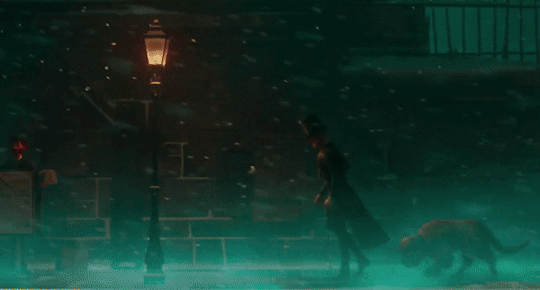
#.... dammit.#he literally went 'rawr'#he's so growly#like a chihuahua#a very very tall and angy chihuahua#one that despises those christmas-sweater outfits#this man is a dog-person thru and thru#why the fuck did netflix make him exist#i'm not complaining but WHY#scrooge#scrooge 2022#ebenezer scrooge#scrooge: a christmas carol#scrooge netflix#gif#shitpost#HE GROWLS ARE YOU FUCKING KIDDING ME NETFLIX#i'm so mad about this and also can't stop cackling#it's frustratingly hilarious#netflix
1K notes
·
View notes
Text
leaving this pinned until marvel actually gives us good queer rep
like so many of the actors (at least in the old marvel shows) have said theyd be onboard with playing their characters queer. queer fans have obviously always wanted that. it cannot be understated how important and impactful good representation is.
and there is so much queercoding going on already, just actually do it at this point. bite the bullet.
stop being cowards marvel
#personally the fact that chloe bennet basically confirmed daisy is bi means so much to me you cant believe it#like i dont think i need to rehash why stuff like that is so powerful#you either get it or you dont#agents of shield#daisy johnson#peggy carter#agent carter#jemma simmons#angie martinelli#cartinelli#skimmons#peggynat#anti marvel#anti disney#anti mcu#chloe bennet#elizabeth henstridge#hayley atwell#lyndsy fonseca
139 notes
·
View notes
Text

House painting 🖌️✨ [Shop]
#My art#Traditional art#Watercolor#Watercolors#Why is this painting so extra fucking grainy? Because I don't trust Tumblr/M//i//d//jou///rn//ey#Sure the fuckers are SUPPOSED to honor your request to not be included in training data but I don't fucking trust that shit#And sure the natural paper texture probably could've been enough but. Fuck it.#(I'm sure the texture is doing fuck all to actually help but I'm angy so let me pretend I'm poisoning their data)#Anyway here's another dingy painting from last fall that I forgot to post until now. Because it's mediocre. Yeet
140 notes
·
View notes
Text

I am really tired of a situation rn.
#fe three houses#felix hugo fraldarius#me using felix on my angy days because he is my angersona? you bet!#anyway if you want to try to get someones money or something bc you hurt your own car banging into mine#can you try to be a bit more timely with it buddy come on you hit me on feb29 !#why am i getting your insurance company calling me today !#also i would like to point out i didnt do it and neither of us were hurt and i filed a claim with my own insurance comp#and also filed a police report bc he didnt even suggest calling the cops to the scene#so like yeah hey man maybe you and your insurance company can move a lil faster or smth#literally everything that happened the day of is - according to my dad - an intimidation tactic#i look like im 15 and he probably thinks he can take advantage of a new driver but ya know! tough luck!#im just really tired and stressed over multiple things not negative so getting this on top of it was like#bro .................... anyway my phone didnt pick up for some reason so i called back and then nothing got resolved#cause the person who actually called me wasnt around to connect the line to from the guy who answered#idk man just its a lot despite my v minimal energy#got a job interview on monday tho ! and then also next week is an eye exam#and you might be thinking isnt that a good thing to get your eyes checked? you are correct but i am horrified#there are two body parts that give me absolute anxiety and eyes are one of them#and i know my eye sight is declining and im just v anxious#its fine im going to be fine i just have to be anxious about it
87 notes
·
View notes
Text
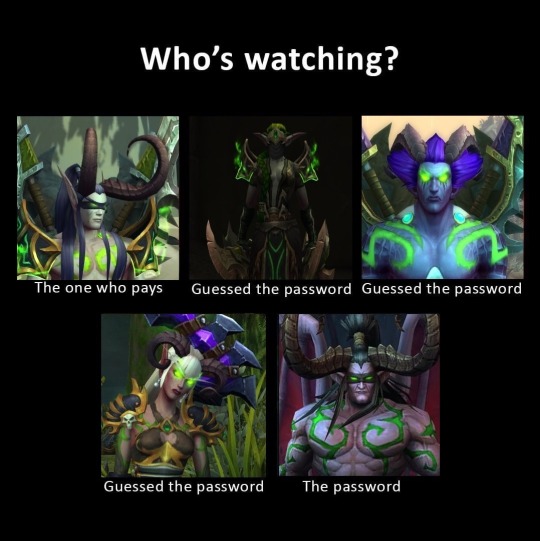
the official WoW account posted one of these and I had follow-up thoughts
#illidari#world of warcraft#illidan stormrage#not pictured: the rest of the illidari#another ms paint masterpiece by katie#idk why jace and allari look so angy when they’re getting Netflix for free
59 notes
·
View notes
Text




#he's always a little angy#idk why he gets so little love and attention#honestly I enjoy playing him more than Kassandra#I've read people didn't liked his VA in english#but idk the VA in my native language is SO GOOD#assassin's creed#assassin's creed odyssey#ac#alexios#ac odyssey#ac alexios#assassin's creed spoilers
86 notes
·
View notes
Note
Eat shit
i mean, i did have taco bell today
#why you so angy#maybe try going outside for a little while or eat a banana or drink some water#and you’ll feel better#answered
40 notes
·
View notes
Text

Man can’t believe he left his basement for this ugly ass award but boy oh boy am I grateful he did 😍
#cillian murphy#psiff2024#seriously why is it so ugly??? it looks like a joke award or something??#awards season#oppenheimer#HE LOOKS SO GOOD AND SO ANGY
123 notes
·
View notes